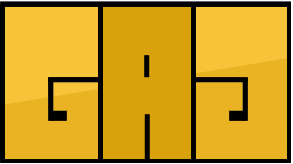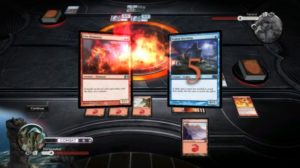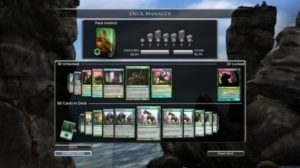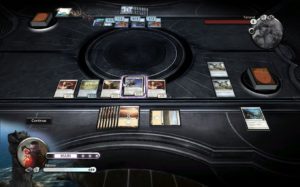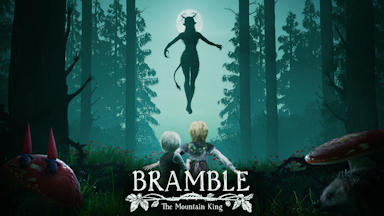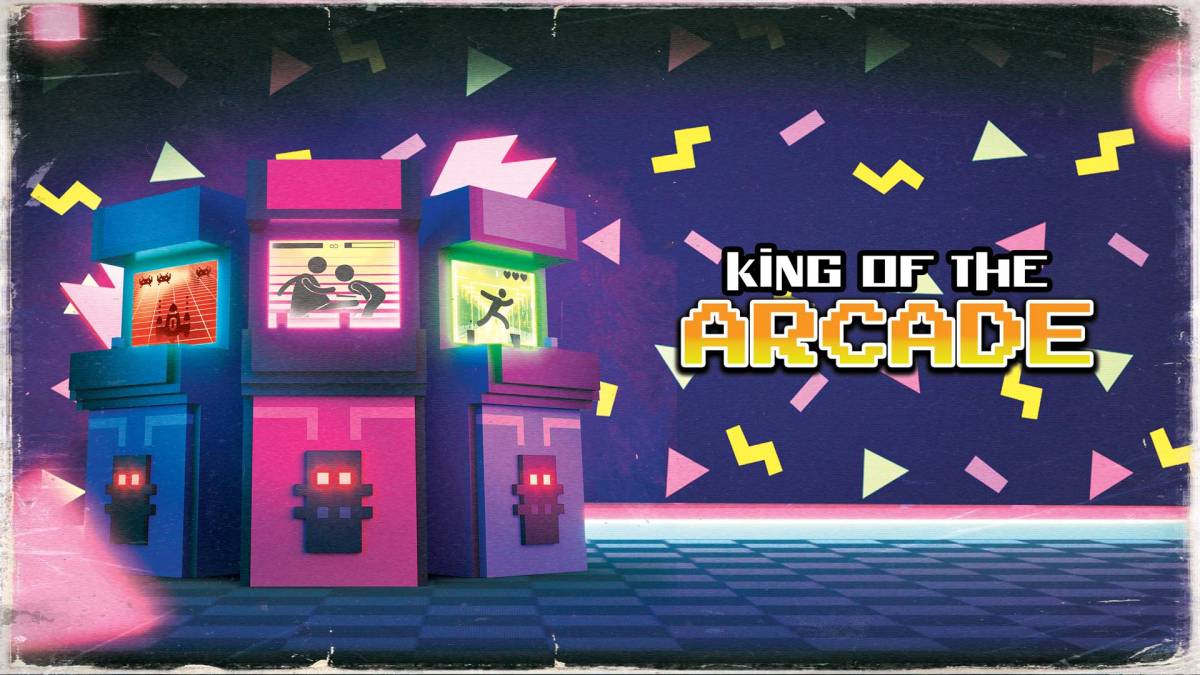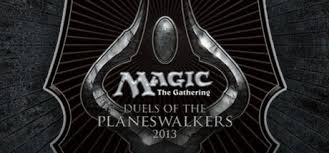
Platforms: Microsoft Windows, PlayStation 3, Xbox 360 (reviewed), iOS
With Magic: The Gathering – Duels of the Planeswalkers 2013, Wizards of the Coast and Stainless Games seem to be looking to make the strategic, collectible card game as accessible as ever. This doesn’t mean that longtime Magic fans will be left with nothing to enjoy as they’ve also given players the most customization options of any Duels game to date. It doesn’t come without its issues though, so let’s find out if the pros outweigh the cons and justify a purchase.
For those who may not know, Magic: The Gathering is a collectible card game that was introduced back in 1993 where two or more players do battle with a variety of spells and creatures. The game focuses heavily on strategy and can take years to master, but can be learned in mere moments. The Duels of the Planeswalkers series was designed to give people a more streamlined Magic experience that can be enjoyed by both novices and veterans alike and for the most part Wizards of the Coast and Stainless Games have done just that.
In Duels of the Planeswalkers 2013 you have numerous options at your fingertips, but the campaign is where most of us will more than likely begin. In the campaign (and in all games of Magic for that matter), you are a Planeswalker. A Planeswalker is a being who can move across the different planes of existence in the world of Magic known as the Multiverse. During the campaign you’ll be able to visit 4 of these planes to take on various opponents. As you progress through the campaign you’ll be unlocking the decks of the opponents you defeat. Completing the main campaign won’t take long at all (depending on your skill and the difficulty you’ve chosen) as there are only 12 matches you must complete. There are also 10 optional “encounters” that let you experience Magic in unique scenarios. While these were a probably a decent idea on paper, actually playing them fell a little flat.
Upon completion of the main campaign you will have new options to dive into. The Revenge campaign allows you to go back through and take on each opponent again, but this time they have a wider variety of more powerful cards at their disposal. You will also gain access to the new Planechase campaign which pits you in a free-for-all against three other opponents as you travel to various Planes made famous in the lore of Magic. Personally I’m not fond of this style of Magic, but I do recommend at least giving it a try if you decide to purchase the game.
The last option in the campaign section is a selection of challenges. These offer very specific scenarios where you must use the cards you are given to overcome obstacles and defeat your opponent (usually in a single turn). These are a blast to work your way through if you don’t mind doing a little problem solving and thinking outside the box. They offer new perspectives into the game and completing each one will give you a better understanding of the various mechanics in Magic, which can definitely help to improve your skill. The ten challenges are almost worth the price of admission alone.
Outside of the campaign you’ll be able to hop online and take on Planeswalkers from around the world with the multiplayer mode. This will likely be where most players spend a majority of their time with the game. From my experience with Duels 2013, the multiplayer is a little glitchier than it was in previous installments. There are times when you just can’t connect to the servers and then there are times when the game will just freeze you out in the middle of matches. While this doesn’t happen too frequently, when it does the experience is not a fun one. Also different from previous games is that fact that when your opponent quits in a multiplayer match they will be replaced by AI instead of the match just ending. This is both a complete waste of time and a step back for the series, so hopefully Stainless decides to change this feature in the near future.
Perhaps the most important part of any Duels of the Planeswalkers game is the deck selection and, for the most part, Duels 2013 doesn’t disappoint. You’ll have access to 10 different decks once you get them all unlocked (either by completing the campaign or purchasing them), which is on par with Duels 2012. Where 2013 does differ from previous installments is in the number of unlockable cards you will have access to for each deck. With every match you win, either against AI or in multiplayer, you’ll unlock a new card for the deck you won with. Each deck will have a total of 30 cards to unlock right from the start, which is the most of any Duels game to date. To put that into perspective, even after three expansions you only had a maximum of 26 unlockable cards in the original duels game and only 20 available in the 2012 version after DLC was released. So Duels of the Planeswalkers 2013 definitely gives you the most customization of any game in the series and not only that, the variety cards you have at your disposal also allows you to build each deck in numerous ways, giving you the most flexibility as well.
Where Duels 2013 falters with its deck selection a bit is in the fact that you get nine mono-colored decks and one multi-colored deck. While there is nothing wrong with this and each deck has its strengths and weaknesses, it does limit your options. This may just be me nitpicking, but I would have liked to see a few more decks with a little more variety and flavor. I will say that by going the mono-colored route the game is definitely more user-friendly and slightly more accessible to newer players. The decks are straightforward enough that anyone could pick them up and play, while also having enough intricacies that more advanced players will be happy with them as well. So this is obviously just a minor complaint of mine, but all-in-all most of the decks are quite enjoyable to play. While we here at GAJ don’t report on rumors, I have heard rumblings that we could see some Ravnica-inspired decks release through DLC, which could be very interesting, but we will have to wait until October to see if that is actually the case.
One last section of the game I feel is worth mentioning is the player status section. I’ve always longed for the Duels franchise to track stats and this time around we get that…kind of. While the game will track things like what color mana you use the most, the most damage you’ve dealt in a turn, the highest life total you’ve reached, the highest number of creatures you’ve had on the battlefield at one time, and the highest power creature you’ve had, it still feels lacking. They left out the stat I wanted the most: amount of time played. I also feel like keeping track of your wins and losses both against AI and online would have been a great addition to the stats menu. Sadly though, we don’t get those and even the stats the game is supposed to keep track of doesn’t work that well as they seem to reset or just no track properly. While I like this addition, it needs some work.
In some instances, Duels of the Planeswalkers 2013 is the best game in the series, but in other areas it also seems to be taking steps backwards. However, if you’re a fan of Magic or the Duels games this game is definitely worth the $10 price tag. On the other hand, if you’re one of the people that still complains that the Duels series isn’t fully customizable or happen to be one of the Magic players that feel like the Duels games are beneath you and your sick Magic skills, then this installment still isn’t for you. For those of you that don’t sit up on a pedestal or live in some fairy tale land, you’ll find an enjoyable game well worth the price of admission.
